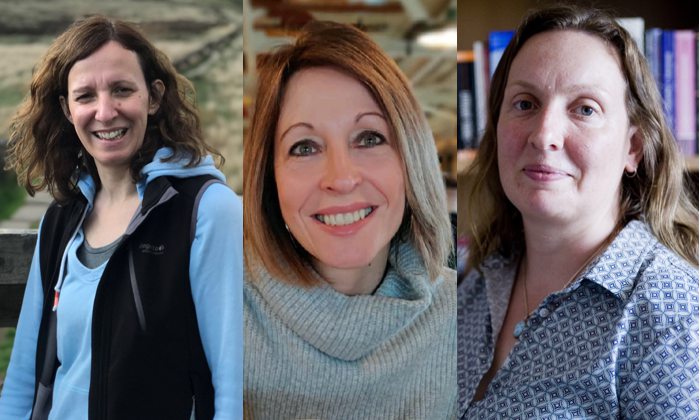Staff evacuate students from Russia after invasion of Ukraine
17 Mar 2022
As the world’s eyes fell on Ukraine following the Russian invasion of its borders, staff from our International Programmes Office (IPO) had to focus their gaze on getting our students back to the UK

At the time of the initial invasion our University had 14 Russian Studies students in Russia. A majority were based in St Petersburg, but some were on language programmes in more remote locations. After getting seven students back to the UK safely and quickly, the challenging situation was made more difficult as airspace closed, flights ceased and the financial sanctions started to hit. This meant the team had to evacuate the remaining students via a combination of train and buses across the border to Tallinn in Estonia.
On coping with the ever-changing scenario International Programmes Officer Lisa Stoker said: “You do feel under pressure, but you need to be ready and prepared to change your original plans in a heartbeat. Things can take a different direction very quickly.”
IPO Manager Dr Caroline Whitehand, Senior Lecturer in Russian Studies Dr Rachel Platonov and Lisa worked in excess of 100 hours between them over just three days to get our students home safely.
As well as the mental and emotional pressures, the team had to navigate the rapidly evolving geopolitical situation. Dr Whitehand explains: “The constant re-working of our plans as sanctions took effect was very challenging. There was a very real concern as to how quickly the situation could deteriorate and our capacity to support the students in the worst-case scenarios.”
It is those worst-case scenarios, however, that the team must constantly be prepared for as a natural part of their job. Whilst the current situation is undoubtedly horrific, this isn’t the first time IPO staff have been called into action due to unprecedented global events.
Dr Whitehand: “We’ve had to evacuate students from some very challenging and distressing situations over the years, from students in Egypt and Syria during the Arab Spring to students caught-up in devastating earthquakes in Japan and Nepal, and the many students trying to get home as borders closed at the start of the pandemic.”
It is a role that, unsurprisingly, can weigh heavy on the staff. Dr Whitehand added: “Our students and ultimately their parents and guardians are trusting us to navigate them through what for many is one of the scariest situations they’ve ever had to face.”
It’s not just their colleagues and students the team are worried about. For Dr Platonov the personal concerns are also extremely real: “During the immediate crisis I was able to focus on what needed to be done, though juggling this alongside other aspects of my role, like teaching, was difficult. But what continues to take the biggest emotional and mental toll is concern for my loved ones in the conflict zone.”
Whilst the intense nature of the work and the consequences that surround it has been exhausting, these colleagues are thankful to each other and the students for how everyone worked together. Dr Whitehand: “I am immensely grateful for the humanity, empathy and humour of the colleagues who worked alongside me, to the students who showed such resilience, and to wider colleagues across the University who offered support.” Lisa added: “I worked alongside a great team, and the messages we received from students showing their gratitude and thanks for all our hard work were lovely to receive.” And Dr Platonov concluded: “I hope that we never have to encounter a situation like this again! However, I am so grateful to everyone involved for their sterling work.”
On his colleagues’ collective work, Director for the Student Experience, Dr Simon Merrywest, said: “This was an outstanding effort and really exemplifies the care and focus for our students that our staff have.
"Let us all applaud and thank Caroline, Rachel, Lisa and the wider team for sacrificing their own time to selflessly support the safety and wellbeing of our students and their families.”
